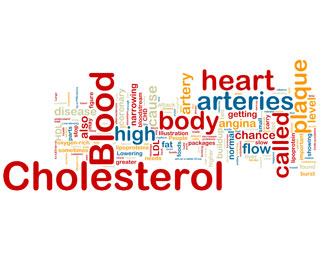 Image credit: Hemera/Thinkstock
Image credit: Hemera/Thinkstock
Even slightly elevated cholesterol levels in otherwise healthy adults ages 35 to 55 can affect long-term heart health, according to a recent study, published in Circulation. In fact, every decade spent with high cholesterol increases a person’s chance of eventual heart disease by 39%, reported the study’s authors, who are from the Duke Clinical Research Institute.
“The number of years with elevated cholesterol, or 'lipid years,' can affect you in a similar way to the number of 'pack years' you have had as a smoker,” said lead study author Ann Marie Navar-Boggan, MD, PhD, in a prepared statement. “It shows that what we're doing to our blood vessels in our 20s, 30s and 40s is laying the foundation for disease that will present itself later in our lives. If we wait until our 50s or 60s to think about cardiovascular disease prevention, the cat's already out of the bag.”
The researchers looked at data from the Framingham Heart Study, focusing on 1,478 adults who did not have heart disease at age 55. They calculated how long each study participant had high cholesterol by that age, and then they followed them for up to 20 years to assess how their cholesterol levels affected their risk of one day developing heart disease. For the purpose of the study, elevated cholesterol was defined as non-HDL cholesterol of 160 mg/dL or higher. The researchers also said they found similar results for patients with LDL cholesterol of 130 mg/dL or higher.
Nearly 40% of the study’s participants had at least 10 years of high cholesterol by age 55. “Over the next 15 years, their risk of heart disease was 16.5 percent, nearly four times the rate of 4.4 percent seen among those without high cholesterol. Each decade of high cholesterol raised the risk of heart disease by 39 percent, suggesting that the cumulative effects of even mild or moderate elevations in cholesterol pose a significant risk to heart health,” according to a press release describing the study.
The takeaway message is that perhaps clinicians should consider cholesterol control sooner for otherwise healthy adults age 35 to 55, Navar-Boggan said, adding that more data is needed on safety and long-term effectiveness of statins in younger adults.